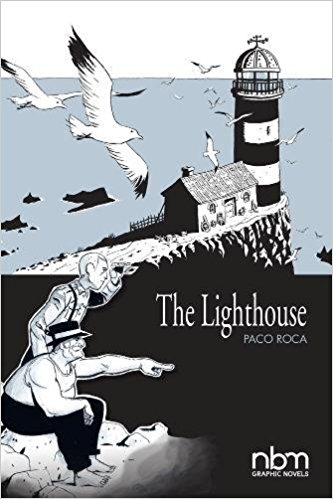
about a group of elderly residents in a home that deals in beautiful and heartbreaking ways with dementia and other issues. The book was made into a 2011 animated film, which Roca co-wrote, and won a number of awards including the Goya Award – Spain’s Academy Award – for best adapted screenplay and best animated feature.
Last year Fantagraphics released Wrinkles in addition to the anthology Spanish Fever, which featured a story by Roca. NBM recently published The Lighthouse , a 2004 graphic novel set during the Spanish Civil War. It’s a book that is both disturbing and realistic but also fantastic and dreamlike, and it is this combination that makes the work so striking and distinctive. These elements played out in a different way in the book Wrinkles, and Roca was kind enough to answer a few questions about his work, animation, the legacy of the Spanish Civil War and what he’s working on next.
Alex Dueben: Have you always been a fan of lighthouses? Did you model the one from the book on a specific place?
Paco Roca: Lighthouses always seemed somewhat magical and mysterious to me. They are the last refuge of mankind before the immensity of the sea begins. This affection for lighthouses could stem from The Lighthouse at the End of the World, the novel by Jules Verne. The lighthouse in the story is a mixture of many real ones, like the one in La Mola, on the island of Formentera, Spain.
Dueben: The book deals tangentially with the Spanish Civil War, which I know remains a very sensitive topic in Spain. Has that changed much in more recent years? Did you worry about using the war at all in The Lighthouse?
Roca: The Lighthouse was published in 2004, three years before Spain would pass the Historical Memory Law. The law, promoted by the Spanish Socialist Workers’ Party, was intended to “normalize” certain peculiarities that still existed in Spain: recognition of the victims of political persecution under the Franco dictatorship, granting the right for the families of victims who were shot during the dictatorship to search out and recover their loved one’s remains (close to 100,000 people were shot during the dictatorship), the elimination of all the symbols of the dictatorship still present in the cities – streets with fascist names, monuments, etc.
More than ten years after The Lighthouse was published and, despite this law, little has changed in respect to Spain. Currently, a right-wing party governs – in some way inherited from the dictatorship – that doesn’t just avoid condemning this disastrous period of Spanish history, but they take pride in not supporting this law. Perhaps, the saddest of it all, is that these groups that are against bringing the Francoist crimes to justice – crimes condemned even by the UN – have achieved their objective: Spanish society isn’t at all interested in this topic.
Dueben: Did you know the structure and the feel that you wanted the narrative to have from the beginning? Did you want the book to have this feel almost of a fable?
Roca: From the beginning it was clear that the story would share this real world, in a dramatic moment of war, with the world of fantasy. The universe of the sea, without borders and populated by free men, versus the mainland with its wars.
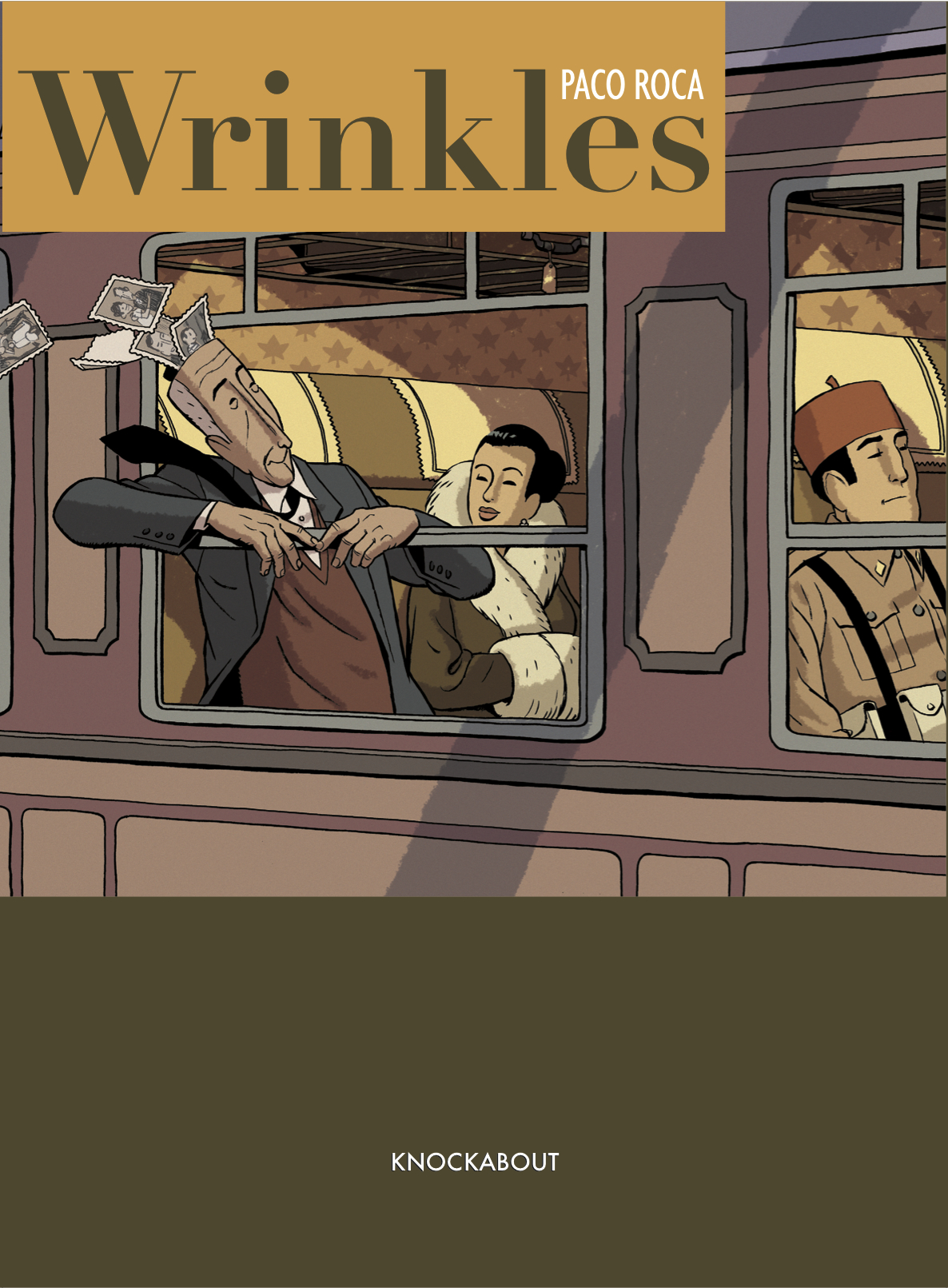
Roca: I liked the idea that everything flows into the inevitable. In some ways reality arranges our dreams. But with this final story taken from One Thousand and One Nights, and re-interpreted by authors like Borges, I believe that, in the end, dreams come out victorious in The Lighthouse.
Dueben: I wanted to ask about your book Wrinkles, because I have a grandmother with dementia and it really rang true for me. Where did the book begin?
Roca: I wanted to discuss old age. At that moment my parents were already older and started to have problems with their health. I realized then how few stories featured older characters as protagonists. Not just in comics, it’s the same in movies and literature. I considered a story without young characters, with just older people, so that we could understand their frustrations and their loneliness.
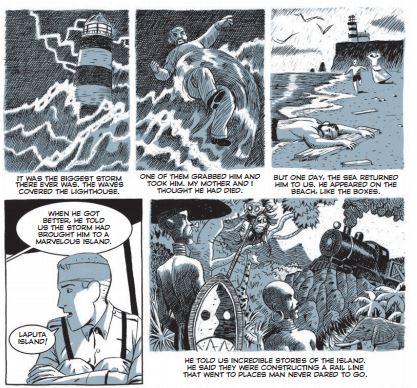
Roca: Again, reality and fantasy share space, like in The Lighthouse. I wanted it so that we would see the story from the eyes of older people. That’s why they fantasies – or delusions – are drawn in the same style, because everything is equally real for these characters.
Dueben: Did working on the animated film of Wrinkles change how you work?
Roca: It was a very interesting experience. I think it is necessary to take your head out of your world, in my case the world of comics, and see how other mediums face the same challenge of telling a story with the same efficiency. All the self-limitations that we believe in are our fear. I opened my eyes in many ways while working on the film. I learned many things that I later applied to my comic projects.
Dueben: I know that you also have another animated film coming out. Do you want to say a little about Memorias de un hombre en pijama?
Roca: It is the adaptation of the series Memories of a Man in Pajamas, a humorous autobiographical comic series that started in print. If my first cinematic project was very positive, this movie has been the complete opposite. My work has been again as a writer, but this time I was also in charge of directing the movie. I ended up so frustrated that there wasn’t a way to make the movie in the direction I wanted to, so I decided to abandon the project. Though, the movie will continue and will premiere in 2018.
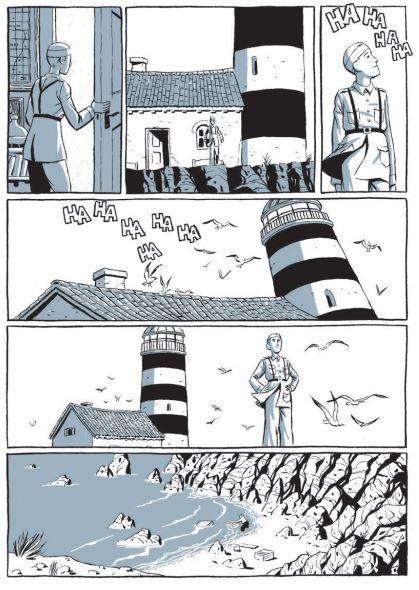
Roca: I want to see my next book, Los Sucros del Azar [The Grooves of Luck], published in the USA, after The Lighthouse. It’s a story that unites the history of the United States, Spain and France during World War II.
A group of Spanish exiles, after being defeated in the Spanish Civil War by Franco but far from giving up, continue fighting against fascism outside of Spain. They enlist in the Free French forces that formed part of the North American army, and ended up liberating Paris from the Germans.


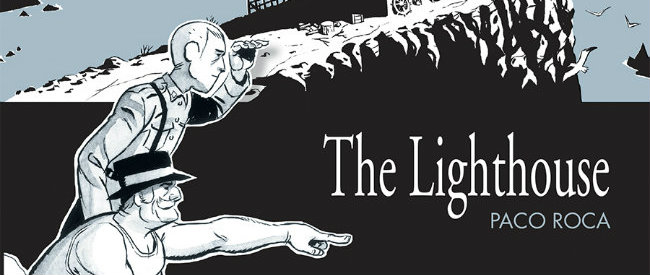







Comments are closed.